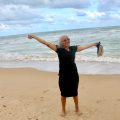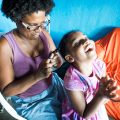The story of Lindalva
Lindalva lives in Rondônia, Brazil with her husband and the youngest of her three daughters. Since becoming involved with NHR Brazil’s Socioeconomic Rehabilitation project in 2021, Lindalva has been making embroidered slippers and biojewellery.
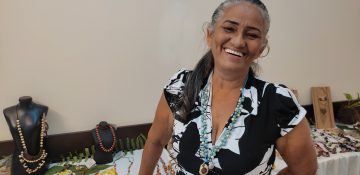
Before her diagnosis, Lindalva worked as a housekeeper for other families, and enjoyed being able to help others. She was experiencing fatigue and weakness, and although her employer noticed that her health was declining, Lindalva struggled to get a diagnosis for her illness.
Lindalva went from doctor to doctor, but none were certain about what was causing her symptoms. It was Lindalva’s mother who first recommended that she should seek a doctor who deals with leprosy. “I was worried,” says Lindalva, “but I also thought it was nothing, that my mother was wrong.”
I was worried, but I also thought it was nothing, that my mother was wrong.”
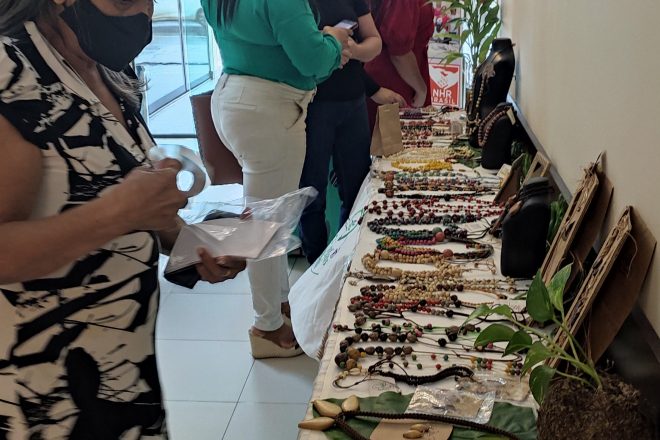
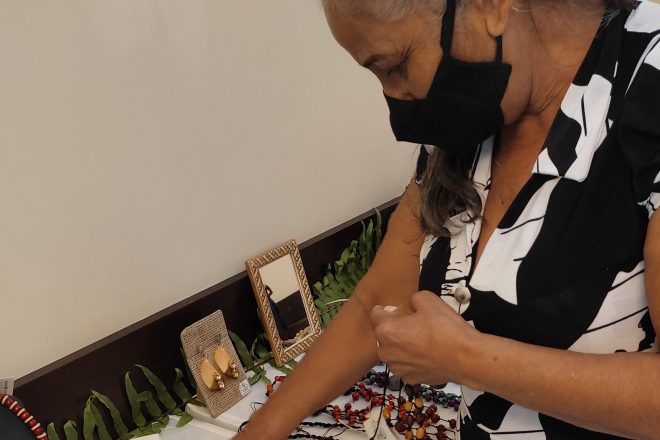
After going to the health unit that specializes in leprosy and taking various tests, the doctor diagnosed Lindalva with leprosy. Lindlva traveled to the city of Curitiba, Paraná to get a second opinion. The doctor in Curitiba confirmed the diagnosis and recommended a course of treatment.
Like many others in her situation, Linalva was afraid of people’s reaction to her diagnosis because of the stigma that surrounds leprosy. Lindalva decided to stay strong for her husband and her youngest daughter who has special needs. Lindalva’s doctor noticed the stress she was under, and suggested that she should take a break and join self-help group meetings.
Lindalva started participating in NLR’s activities in 2021, twenty years after her original diagnosis. “My doctor told me about the Socioeconomic Rehabilitation project, and I wanted to participate.”, saya Lindalva, adding that because of this, she now has her artisan’s license.
